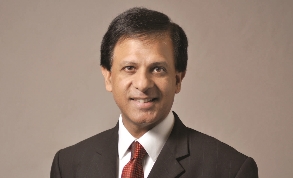Covid-19 reader: 22 October
Addressing social care staff shortages
National Care Forum, survey
 The English government needs to pay social care staff a retention bonus and fund a pay increase to address a critical shortage of staff across the sector, according to the National Care Forum.
The English government needs to pay social care staff a retention bonus and fund a pay increase to address a critical shortage of staff across the sector, according to the National Care Forum.
Social care service managers, responding to a survey by the not-for-profit care providers’ body, reported an average staff vacancy rate of 17%, leading to a significant reduction in the amount of care available.
Some 67% reported they have either limited or stopped admissions of any new people into care homes or they have had to refuse to take on new requests for domiciliary care for people living in their own homes or in the community. Some have had to hand back packages of care to the local authority because they do not have enough staff to provide them. This includes 33% who said they had limited or stopped admissions from hospitals.
In total the 340 survey respondents estimated this amounted to around 5,000 people being turned away from care services since the beginning of September.
Vic Rayner, speaking to Radio 4’s Today programme on Wednesday, said staff continue to deliver high quality services to those in care services already. ‘But it is people not yet able to get access to that care who are really suffering right now,’ she said.
On the same programme, Sue Porto, chief executive of the Brandon Trust, which works with people with learning disabilities, said there had been a sharp rise in the number of people leaving the sector and this was placing ‘huge stress and additional burden’ on the staff that remain. In September alone, remaining staff had to work an additional 34,500 hours over and above their normal contract hours to be able to keep people safe and supported.
The shortages can mean real differences for service users. ‘For people we support with learning difficulties and autism, if for example someone is living in a house with a few other people, they may normally have a staff team of six on a shift,’ she said. ‘If we only have two people, they don’t get the one-to-one hours and so won’t be able to go out and have to remain at home.’
Ms Rayner (pictured) said that the basic problem causing the staff shortages was not paying staff enough to do the job. The forum is calling for a retention bonus to be paid to recognise those ‘staff who have worked tirelessly, 24/7 for the last 19 months of the pandemic’.
‘We desperately need those staff who are fantastic and worked all through this pandemic to stay,’ said Ms Rayner. ‘If they leave and take other jobs in retail or hospitality, we’ve lost those skills and expertise, perhaps forever from the care sector. And we need government to properly fund a raise in salaries of care staff to attract new people and get people to stay in this sector.’
The government should also add care workers to the shortage occupation list for a time-limited period to help the care sector now.
The forum’s points were further underlined by the release of the Care Quality Commission’s annual State of care report on Friday, which also reported rising month-on-month vacancy rates in residential care homes. Some homes, it said, were having to cancel their registration to provide nursing care.
Plan B or not Plan B, that is the question…
NHS Confederation, statement
Healthcare leaders this week called for stricter controls to be put in place to combat Covid-19 to avoid the NHS being overwhelmed this winter – a proposal that was immediately rejected by the government.
Cases reported on Thursday exceeded 50,000 – marking the ninth day in a row of more than 40,000 cases. It was mid-July when the seven-day average last hit these levels. And daily admissions to hospital are also increasing steadily, with a more than 20% increase over the last four weeks in the seven-day average (now sitting at just over 900).
In September, the government published its autumn and winter plan, involving a continued focus on getting the population vaccinated, maintaining the test and trace programme and extra support for the NHS and social care. But it also outlined a plan B if cases started to rise sharply. This would involve clear communication to the public about the increased level of risk, mandatory vaccine-only Covid-status certification in certain settings, and mandated use of face masks in certain settings.
The NHS Confederation now wants these actions to be ‘introduced sooner rather than later so that if cases of coronavirus still rise to worrying levels, the government can then introduce tougher measures if needed’. It has pointed out that many of the measures, particularly involving mask wearing and vaccine certification, are already common in parts of Europe, where the prevalence of the disease is lower.
With the NHS preparing for what could be the most challenging winter on record, the representative body is concerned about increasing demands on the service and pressure on staff capacity.
‘There is a crucial opportunity for the public to pull together and show extra support for the NHS by behaving in ways that will keep themselves and others safe and also safeguard stretched frontline services for those most in need,’ said chief executive Matthew Taylor. ‘It is time for the government to enact Plan B of its strategy without delay because without pre-emptive action, we risk stumbling into a winter crisis. Also, health leaders need to understand what a ‘Plan C’ would entail if these measures are insufficient.’
He added that the government should not wait for Covid infections to rocket and for NHS pressures to be sky high, before sounding the panic alarm.
In a briefing on Wednesday, health and social care secretary Sajid Javid acknowledged said that cases could rise as high as 100,000 a day and that hospitalisations were already approaching 1,000 a day. However, the government would not be implementing its plan B ‘at this point’.
Instead, the government will redouble efforts to encourage the five million people who have not yet taken up offers of an initial vaccine to come forward for a jab. Access to vaccinations for 12- to 15-year-olds will now be available through the national booking service as well as via schools. And the booster programme will also be a major focus, as without it ‘we will see a real world impact’, said Mr Javid.
The confederation’s stance was backed by medics, with the British Medical Association council chair Chaand Nagpaul describing the decision not to pursue Plan B as ‘incredibly concerning’. Dr Nagpaul (pictured) contrasted the UK’s unacceptable rate of infections, hospitalisations and deaths with those in similar European nations. ‘In comparison to France, we have more than 10 times the number of cases and almost four times as many deaths per million,’ he said.
‘It is wilfully negligent of the Westminster government not to be taking any further action to reduce the spread of infection, such as mandatory mask wearing, physical distancing and ventilation requirements in high-risk settings, particularly indoor crowded spaces,’ he added. ‘These are measures that are the norm in many other nations.’
And academic and NHS non-executive Chris Ham said he did not recognise the health secretary’s assertion that the NHS was coping with current pressures or that further measures were not needed. ‘One of us is living in a parallel universe,’ he tweeted.
Global action needed to protect health and care workers
World Health Organization, statement
The UK may need to think about very specific responses to the surge in Covid-19 cases that it currently faces. But other issues may need to be tackled on a global level.
The World Health Organization this week issued a statement calling on all member state governments to strengthen the monitoring and reporting of Covid-19 infections, ill health and deaths among health and care workers. It is also calling for the data to be disaggregated by age, gender and occupation as a standard procedure to help identify mitigation measures to reduce the risk of infections and ill health.
The WHO said too many health and care workers had become infected, ill or died as a result of the pandemic. Between 80,000 and 180,000 could have died between January 2020 and May 202, according to a WHO working paper – a ‘tragic loss’ and an ‘irreplaceable gap in the world’s pandemic response’.
While the rate of infections among health and care workers has reduced over time, more work is needed to minimise the risk of infection.
As of September, data from 119 countries suggested that two in five health and care workers were fully vaccinated on average. This falls to less than one in 10 in Africa and the Western Pacific regions. In 22 mostly high-income countries, more than 80% of personnel are fully vaccinated.
The WHO said it was ‘deeply concerned’ about deaths, low vaccination rates and vaccine inequities among health and care workers in low- and middle-income countries. There were large numbers of cases of workers having to re-use or construct their own personal protective equipment, it added.
In particular, the international health body called for:
- data collection and reporting to be strengthened
- protection of health and care workers during and beyond the pandemic
- ·vaccination of all workers in all countries to be accelerated.
‘Recognition and commemoration are not enough,’ the statement said. ‘It is our moral obligation to protect and invest in health and care workers. And we must move forward together.’
Related content
We are excited to bring you a fun packed Eastern Branch Conference in 2025 over three days.
This event is for those that will benefit from an overview of costing in the NHS or those new to costing and will cover why we cost and the processes.